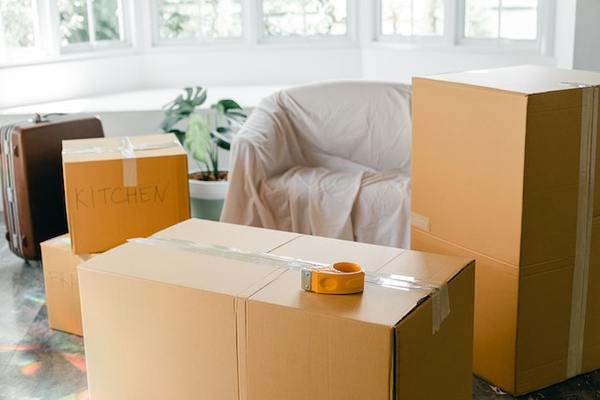
How to Create a Moving Checklist and Budget
Moving is a significant life event that requires careful planning and execution. Whether relocating within the same city or embarking on a new adventure by moving abroad, having a well-structured moving checklist and budget can make all the difference. Creating a moving checklist and budget might seem daunting, but it's essential to ensure a smooth and organized transition. In this guide, we'll walk you through the key steps and strategies to create a moving checklist and budget to help you stay on track and reduce the stress of moving.
Understanding the Need for a Moving Checklist and Budget
Moving is not just about transporting your belongings. It's a multifaceted process that involves various tasks, decisions, and potential challenges. Without a well-structured plan in place, moving can quickly become overwhelming and chaotic. As a result, when you create a moving checklist and budget, you are making a roadmap to navigate these complexities. It helps you identify tasks, set priorities, and manage your time effectively.
Moreover, a budget ensures that you're financially prepared for the expenses associated with the move. From hiring movers to packing supplies, some costs can add up. Furthermore, having a budget can also help you handle financial emergencies that might arise during the moving process. Therefore, in the next sections, we'll delve into the steps to create a comprehensive moving checklist and a practical budget that aligns with your needs.
Top Must-Have Items on Your Moving Checklist
Regarding moving, certain tasks take precedence to ensure a seamless transition. Here's a breakdown of the top must-have items on your moving checklist:
Arrange Moving Logistics
First, decide whether to hire professional movers or do a DIY move. Research moving companies, compare quotes, and book the services that best fit your needs and budget.
Declutter and Downsize
Before packing, assess your belongings and decide what to keep, donate, or discard. That reduces the items you'll need to move, lightens your load, and lowers costs.
Gather Packing Supplies
Collect sturdy boxes, bubble wrap, packing tape, and other essential materials. These will streamline the packing process and protect your belongings during transit.
Do a Thorough Inventory
Sort, categorize, and make a list of your items before the move. That helps you keep track of everything and serves as a valuable reference for insurance purposes and unpacking at your new destination.
Update Your Address
Notify relevant parties of your upcoming move, including postal services, banks, subscriptions, friends, and family. That ensures your mail and communications are forwarded to the correct address.
The Art of Setting Your Moving Budget
Creating a realistic moving budget is crucial in the moving process, ensuring you're financially prepared for the journey ahead. Here's a comprehensive guide to help you set up your moving budget effectively:
Estimate Your Expenses
Before diving into the specifics, research and estimate the various costs associated with your move. That includes transportation, packaging materials, possible lodging, and any unexpected expenses that might arise.
Consider Professional vs. DIY Moves
Decide whether to hire professional movers or take on a DIY approach. While professionals offer convenience, they come at a higher cost. Weigh the pros and cons to make an informed decision.
Calculate Costs Before Buying a Home
Suppose you're moving due to a home purchase, then factor in costs such as down payments, closing fees, and realtor commissions. These expenses can significantly impact your budget.
Allocate Funds for Unforeseen Expenses
Always leave room for unexpected costs. A general rule of thumb is to set aside around 10% of your total budget for any surprises that may come up during the moving process.
Balance Needs vs. Wants
Prioritize your expenses by distinguishing between essential and non-essential costs. That might involve making trade-offs to ensure your budget remains within your financial limits.
How to Stick to Your Budget During a Move
Maintaining financial discipline during a move is crucial to stay within your budget and avoid unnecessary stress. Here are effective strategies to help you stay on track:
Utilize Budgeting Apps or Tools
There are numerous apps and tools designed to help you track your expenses. These can provide real-time insights into where your money is going and help you make informed decisions.
Exercise Self-Discipline
Remind yourself of the importance of sticking to the budget you've created. Practice restraint when making non-essential purchases and stay focused on your financial goals.
Shop Smart for Moving Supplies
Look for deals, discounts, and second-hand options for packing materials and moving essentials. Minimizing these costs can significantly impact your overall budget.
Prioritize Needs Over Wants
While it's tempting to splurge on new furniture or decor for your new place, focus on fulfilling immediate needs first. You can gradually enhance your living space once you're settled.
Regularly Review and Adjust
Continuously monitor your expenses against your budget. If you notice deviations, make necessary adjustments to prevent overspending.
Why It’s Crucial to Review and Adjust
Change is a constant companion during the moving process. As such, regular reviews and adjustments to your moving checklist and budget are paramount for a successful and stress-free move. Here's why:
Adapt to Unforeseen Circumstances
Life is unpredictable, and unexpected situations can arise. By regularly reviewing your plans, you can adapt and pivot as needed to address new challenges.
Fine-Tune Your Budget
As you progress through the moving journey, you may better understand your spending patterns. Adjusting your budget ensures you remain aligned with your financial goals.
Reduce Last-Minute Rushes
Regularly reviewing your moving checklist helps avoid last-minute scrambles and ensures all tasks are appropriately managed and timed.
Embracing flexibility in your moving checklist and budget empowers you to navigate the complexities of moving with confidence and resilience. If you remain open to adjustments, you're better prepared to handle any curveballs that come your way.
Conclusion on How to Create a Moving Checklist and Budget
Successful moves are built on meticulous planning, careful budgeting, and adaptability. Therefore, when you create a moving checklist and budget, you don’t just complete a task. You invest in ensuring a smooth transition to your new home. By staying organized, disciplined, and ready to adapt, you pave the way for a relocation experience that's as stress-free and efficient as possible. As you embark on this journey, remember that preparation is your best ally. Safe travels!



.png)
.png)
What do you think? Leave a comment
0 Comment(s)